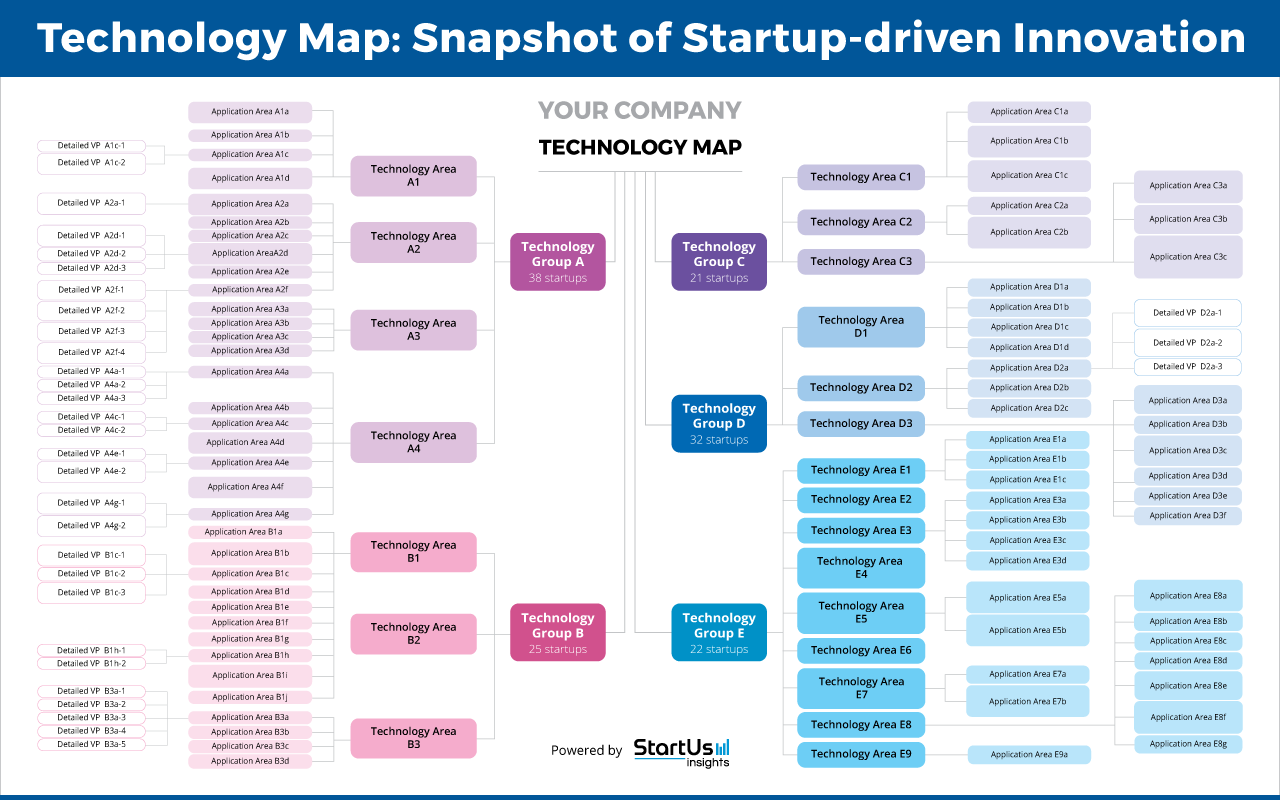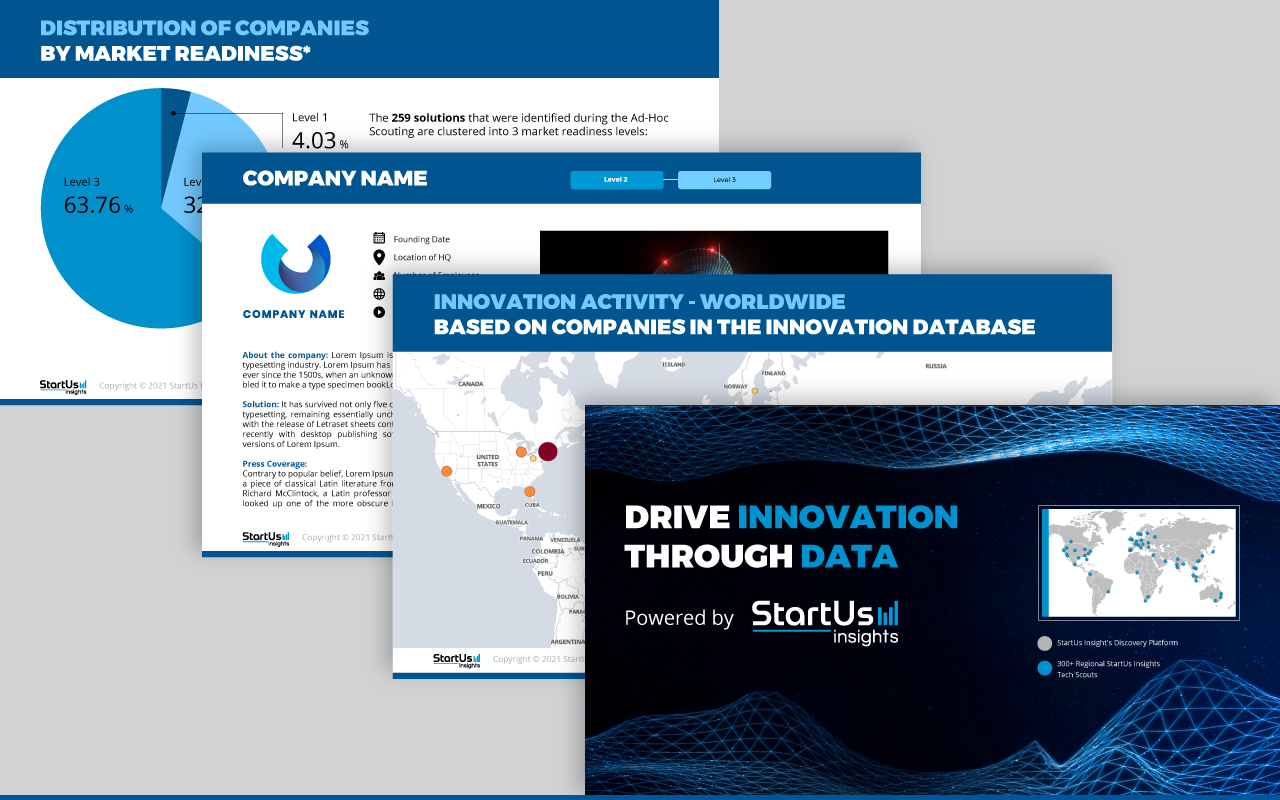Every year, thousands of new products enter the market. But only a handful of these survives more than a couple of years. Companies that consistently build products that last longer than others build a competitive advantage. However, product development teams at large companies face fierce competition – not only from emerging startups. While these teams often take months or years to take a product from idea to market, the agility of startups allows them to launch new products within just a few months. As a result, large companies may see their products outdated at launch. Innovative intelligence allows companies to prevent this by incorporating innovation intelligence to speed up product development.
5 Challenges to New Product Development
As something that outlines both the near-term and long-term success of a business, product development is a critical function that companies spend a lot of time and money on. Despite their massive budgets, product teams often run into bottlenecks. Here are 5 of the most common challenges that product development teams face:
1. Ideation
As surprising as it may seem, especially if you work at a startup, teams in large companies are often not creative enough. Years of a bureaucratic business culture means things move slow, a pace that is not conducive to ideation. If a company’s competitor intelligence is lacking, its assessment of its competition’s abilities and its customer’s needs can both be far from reality. Further, extreme focus on specific internal innovation can keep product teams oblivious to the gaps in their processes. To address these issues and encourage ideation, product and innovation managers need to encourage creative thinking and a culture of looking for innovation externally. Additionally, some companies are also incorporating artificial intelligence (AI) to speed up their product development and design process.
2. Market Viability
Assessing market viability falls between ideation and actual development and it is also where most internal ideas die. Simply having the best product or a novel technology does not guarantee a competitive advantage. It must add value for existing customers or have the potential to open up a new customer segment. Assessing market viability is thus incredibly important before companies invest money in the development process. It is especially critical when the expected payoff of the new product is limited. For instance, when a company is in a commodity trap and forced to chase incremental improvements. In this case, market intelligence allows companies to assess the economic viability of potential product lines before developing them.
3. Trade-Offs
If product designers exclusively ran the show, they would add every functional or aesthetic aspect they could to a product. Life as a product manager, however, is about making difficult decisions. Which functions would the customers care more about or would add more value for the customers? Are aesthetic improvements worth the money? Answering questions like these allows product development teams to evaluate which trade-offs they’re willing to make. There are no correct answers or complete data to work with. To address this challenge, companies need to explore external innovation and estimate how different iterations would fare.
4. Time-to-Market
As mentioned above, this is where companies face the toughest challenge from startups. The relatively longer time-to-market presents a range of challenges to companies. As technologies now evolve rapidly, it’s difficult to accurately benchmark a project that lasts years throughout the development cycle. Longer time-to-market erodes the value proposition and, thereby, lowers any competitive advantage. Even if you develop a product before others, startups can build alternatives within months, leaving you a small window to capitalize on. Conversely, any process improvements or new technologies that cut down time-to-market have the largest impact on product development.
5. Global Competition
Lastly, the global competition from startups presents an innovation challenge. Only a few decades back, if a company developed a revolutionary product, it could eventually gain a competitive advantage in most geographic locations. That’s not true anymore when innovation occurs synchronously around the world. For instance, by the time Uber was ready to expand to South America or Southeast Asia, local startups had built similar products for their regions and captured the market.

Incorporating startup-driven innovation via open innovation strategy allows companies to speed up product development.
How Innovation Intelligence Speeds Up Product Development
Innovation intelligence allows companies like yours to leverage internal and external skill teams and technologies to improve product development processes. Some benefits of leveraging innovation intelligence for new product development include:
- Environmental scanning brings down time-to-market by incorporating new technologies and process improvements.
- Technology scanning improves project benchmarking, thereby ensuring that product development is at least at par with industry standards.
- Startup scouting discovers potential startup partners that develop similar or adjacent products or crucial components for them.
- Trend analysis identifies opportunities for new products before your competitors do.
- Trend intelligence improves technology feasibility assessment, thereby enhancing the outcomes of corporate-startup partnerships.
Access Data-Driven Innovation Intelligence
With over 2,5 million startups & scaleups active globally, there is an astronomical amount of data on new products and technologies available. Evaluating this product landscape costs money and labor that is better spent on product development. Data-driven innovation intelligence tools bring down the time required to access firmographic information on startups from weeks and months to a few days. The StartUs Insights Discovery Platform searches the entire global innovation ecosystem to find the right startups and technologies for you.
Based on your innovation goals, some of the deliverables that we at StartUs Insights provide include:
- Trend Map: Based on data-driven research, we classify emerging trends and group them into categories so you can see all of them at one glance.
- Trend Report: The Trend Report provides you with quantitative insights into the most impactful trends. Additionally, it presents exemplary startups advancing each trend.
- Startup Database: The Startup Database lets you discover a high number of innovative startups that are advancing the emerging technologies trends in your industry.

StartUs Insights delivers a range of innovation intelligence services that improve product development practices at your company.
Looking to leverage innovation to speed up product development? Get in touch today to find out how we use innovation intelligence to help you achieve that!



![Essential Guide to Digital Transformation in the Automotive Industry [2025 & Beyond]](https://www.startus-insights.com/wp-content/uploads/2024/12/Digital-Transformation-in-Automotive-SharedImg-StartUs-Insights-noresize-420x236.webp)




